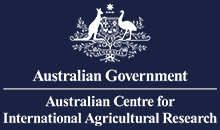The DSI4MTF project held a very successful mid-term review meeting in Patna 26th to 29th September 2016. There were 35 delegates in attendance from Partner organizations.
Madhubani Field Visit
A number of us participated in field visits to Madhubani 23rd to 25th September to meet with farmer collectives and key local stakeholders and to discuss progress in intervention sites. The extent to which farmers have embraced collective dry season farming was impressive.
Discussions at Bhagwatipur Site No 1 on project activities.
Local farmer groups shared the benefits of operating as a collective which includes labour saving, risk sharing and increased income. Landlords also reported reduced risk and potential for higher rents. There are early signs that neighbouring farmers are also embracing collective farming approaches.
Meeting with farmer groups Bhagwatipur
Improved irrigation practices and biophysical monitoring programs were discussed on site. A meeting with local government department officials highlighted the difficulties for marginal farmers to access government programs and subsidies. This will be an important issue for the project to address to ensure broader adoption of the collective farming systems.
The field visit was very beneficial and there is much optimism as we move into the Rabi season with further expansion into higher value irrigated cropping systems. Capacity development of farmers and increased agronomic support were identified as key issues. Ritesh Kumar (Sakhi) and Anoj Kumar (IWMI) are thanked for planning and leading the field visit.
We were fortunate to have Dr Christian Roth (CSIRO, external reviewer), Dr Evan Christen (ACIAR Program manager) and Dr Kuhu Chatterjee (ACIAR South Asia Manager) participate in the field visit and mid-term review workshop in Patna.
Patna Mid-Term Review Workshop
Sessions in the first two days were very interactive focussing on regional updates by partners, progress in social and biophysical studies, project impact pathway, training programs, stakeholder engagement and communication. Outscaling and upscaling opportunities were discussed as well as technical aspects of irrigation interventions and biophysical and social impact monitoring.
Day three focussed on activity planning and the final day on workshop sessions, covering development of a training and engagement manual, gender training as well as irrigation technologies and site monitoring.
Stephanie Leder leading us on in interactive session exploring stakeholder engagement and communication.
Group feedback on experiences with technical interventions.
Feedback from reviewers was positive with a number of clear recommendations for consideration. Reviewers recognised the huge potential for the social interventions such as the formation of farmer collectives combined with appropriate cropping systems and irrigation management to have a significant impact on food security and poverty alleviation. The strong interdisciplinary science focus of the project was also recognised. This makes research integration, a major focus of all participants, challenging.
The complexity and scope of collecting biophysical and social data discussed and the need focus on critical areas was highlighted. Greater focus on early documentation of findings will be important to broaden our influence. Of particular importance will be communicating with farmers and broader stakeholders the outcomes and impact of project activities.
The workshop highlighted our early success in demonstrating the benefits of collective farming. It will be important to evaluate and understand the benefits, barriers and risk of the social and biophysical interventions being tested in order to lay a very solid foundation for subsequent out- and upscaling. A focussed engagement plan with key stakeholders will be required to drive upscaling. A successful stakeholder meeting was in fact held by ICAR and Sakhi the day following the mid-term review and a short report on this meeting has been provided separately on this web site by ICAR.
Close engagement with farmers to build trust and empowered communities is crucial for sustainable implementation of improved irrigation practices. The importance of documenting these engagement processes was highlighted. It is good to see a recent article on this web site, prepared by CDHI, outlining a process of community engagement and joint learning at the Uttar Chokwakheti site in West Bengal. Capacity development is critical to both farmer groups, advisors and project participants. It will be important for us to evaluate and document the effectiveness of our capacity building activities.
A number of key recommendations were made by reviewers. These included:
- Critically reviewing research strategy, aiming to phase out components that are not fully aligned to primary project objectives and strengthen those that are.
- Maintaining a strong focus on appropriate technologies and treatments that are most beneficial to farmers with lowest risk of failure.
- Development of a key publication plan to identify seminal, integrative research papers that will help drive integration within the project and accelerating the write up of planned documentation.
- Considering a small extension to the project to allow full write up of the project following the 2017/18 Rabi season.
- Maintaining a primary focus on fully understanding benefits, barriers and risk of the social and biophysical interventions being tested, in order to lay a very solid foundation for subsequent investments in out- and upscaling.
- Creating opportunities for greater participation by collaborating farmers in data collection.
- Critically reviewing the project activity and monitoring and evaluation plan to ensure relevance and achievability.
The forum was intense, hugely beneficial and I thank all who attended for their commitment and active participation. Much progress has been made that we should be proud of. There remains much to be done by all to drive this important work forward. A special thanks goes to ICAR organising team in particular Santosh Mali and Ajay Kumar from ICAR and Anoj Kumar (IWMI) for making local arrangements for the workshop.









